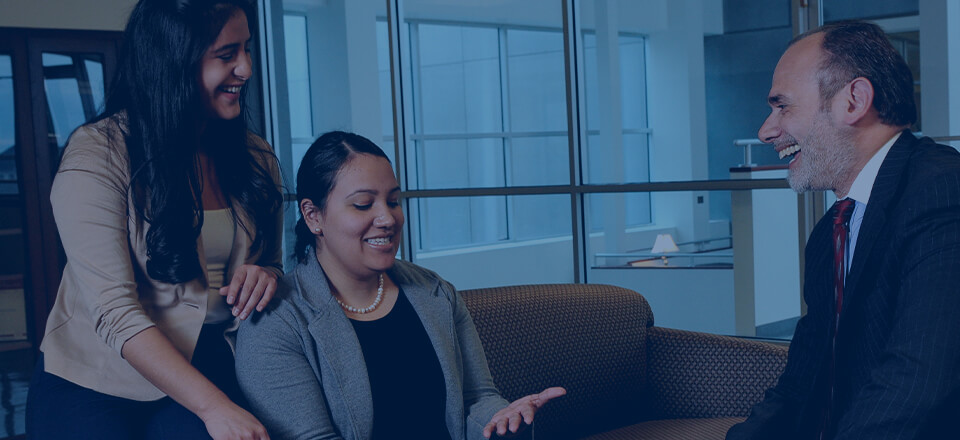Career Services
Writing the Perfect Letter
The Cover Letter
A cover letter is just as important as a resume! Unless otherwise indicated, a cover letter should always accompany your resume.
The main purpose of a cover letter is to convince the reader to review your resume and grant you an interview. The cover letter should be personalized for each employer.
It also should:
- clearly establish your reasons for applying for a particular position
- include what is unique or relevant in your background that would qualify you for the advertised position.
- NOT be a summary of your resume.
- always be about what you bring to the table, not how interesting a job may be to you or how much experience you are going to get out of a job
The content of a cover letter should be clear and straightforward. Let them know:
- why you are writing;
- where you learned of the job (if applying to a specific job lead);
- why you are interested in them;
- what you can contribute to them.
- that you are familiar with the firm and have done some background research on it. Include a sentence or two about them.
Note: Do not start off your letter with "My name is..." Employers consider this to be a fairly unsophisticated approach.
If you seek employment outside the New York metropolitan area, indicate your reason for doing so (e.g. plan to relocate upon graduation, or that you were originally from that area before attending law school). Emphasize any ties you may have to the area, and whether you will be in the area on specific days so that an interview can be scheduled. The employer may decide that based on the strength of your resume, and the fact that you are going to be in the area anyway, it would make sense to set up an appointment to meet with you. [Please note that employers rarely pay for the travel arrangements for screening interviews.]
Always type letters on standard 8 1/2" x 11" bond stationery, using business letter format and signing each one individually. Use the same font and the same header (name, address, phone, and email) that you use on your resume.
Be sure to address the letter to a specific person. If you do not know who to address the letter to, simply call the employer and ask who is in charge of recruitment.
Remember your audience – lawyers: language and details are their livelihood. Your resume and cover letter are the employer’s first introduction to your work habits. Make sure that there are no typos, all names are spelled correctly, and that addresses are accurate.
Following Up
It is a good practice to keep track of all employers to whom you have written. Keep a list of names, dates, responses and results of interviews. This simple task will prevent the embarrassment of sending more than one resume to an employer or not knowing who someone is when he or she calls you for an interview.
As you may know, employers are not always timely in terms of responding to letters. If you have not heard from an employer after two weeks or so, you should place a brief call to the employer to inquire about the status of your application. But avoid making frequent phone calls. Use your judgment with respect to which employers should get calls and, if you feel a phone call may be inappropriate, send a follow-up letter instead.
The Thank You Letter
Now that the interview is over, you can breathe a sigh of relief. But before your enthusiasm wanes – and while the interview is still fresh in your mind – take some time to write a thank you letter to the person with whom you have interviewed.
The thank you letter should:
- Be mailed within 48 hours (24 hours if the decision is going to be made in the next couple of days)
- Convey your continued interest in the job and your appreciation for the interviewer’s time.
- Be typed and very short. It is entirely appropriate to use the same color and type of paper that you used for your resume and cover letter. In any case, you want your last contact with the prospective employer to convey the same image as your resume, cover letter and interview – professionalism and thoroughness.
The letter should be addressed to the attorney with whom you interviewed. If there was more than one attorney conducting the interview, or if you spent the afternoon being shuffled from one office to another, you can write individual letters to all of the interviewers (do not duplicate the same letter – each one must be different) or write one letter to the senior or main interviewer. If you write one letter, be sure to ask the recipient to relay your thanks to the other attorneys with whom you spoke. Therefore, whether you write individual letters or one letter, make sure you get the names of all the interviewers you saw at the office – ask for a business card so that you will have the proper spelling of the attorney’s name for subsequent correspondence.)
Your thank you letter should follow a business letter format similar to your cover letter:
- The first paragraph should express that you enjoyed meeting with the interviewer and should include the date and location of the interview.
- The second paragraph should convey your continued interest in the position for which you were interviewed and close by offering any additional information that is necessary.
- Make note of what impressed you about the firm or the interviewer and why you want to work for that particular firm. Refer to something you discussed with the interviewer.
Above all else, keep it short and to the point. A sample thank you letter can be found here.

